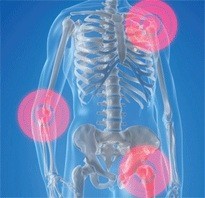Yuflyma (CT-P17) is an adalimumab biosimilar, administered at 100 mg/mL that also has the same citrate-free and high concentration formulation of reference adalimumab. To demonstrate the bioequivalence of CT P17 to reference adalimumab, a randomized, double-blind, active-controlled study in subjects with moderate to severe rheumatoid arthritis (RA) was conducted [1]. The study was designed to demonstrate equivalence of efficacy (ACR20* response rate at Week 24) for CT P17 versus reference adalimumab and to evaluate additional efficacy, pharmacokinetics (PK), usability and safety over one year.
A total of 648 subjects were initially randomized 1:1 to receive 40 mg of CT P17 or reference adalimumab every two weeks up to Week 24. Before dosing at Week 26, subjects in the reference adalimumab group were randomized (1:1) either to continue reference adalimumab or to switch to CT P17 (both every 2 weeks until Week 48). All subjects initially randomized to CT P17 continued CT P17 treatment. The primary endpoint was ACR20 response rate at Week 24. Secondary endpoints of efficacy, PK, usability and safety, including immunogenicity, were also evaluated. Results up to Week 24 were reported [1].
Baseline characteristics were similar between groups (324 subjects in each arm). The primary efficacy endpoint, ACR20 response rate at Week 24 was 82.7% (268/324) for both CT P17 and reference adalimumab. The 95% confidence interval (CI) of -5.94 to 5.94 for the estimate of treatment difference was entirely within the predefined equivalence margin of -15% to 15% (EMA assumption), demonstrating therapeutic equivalence between groups. The 90% CIs for the estimate of treatment difference (-4.98 to 4.98) were also entirely within the asymmetric equivalence margin of -12% to 15% (FDA assumption). Secondary efficacy endpoints were also similar between groups.
In terms of PK, the mean Ctrough was comparable between groups in the PK population, although values were slightly higher in the CT P17 group compared to the reference adalimumab group. The mean Ctrough for both groups in the PK population gradually increased from baseline up to Week 22.
The usability endpoint showed comparable results between groups. In addition, all subjects in the population in which usability was assessed completed self-injection successfully.
Overall safety profiles were similar between groups. The proportion of subjects experiencing ≥1 treatment emergent adverse event (TEAE) was 169 [52.2%] subjects and 184 [56.8%] subjects in the CT P17 and reference adalimumab groups, respectively. Most TEAEs were mild or moderate, grade 1 or 2 in intensity. The most common TEAEs were injection site reactions (16 [4.9%] vs 22 [6.8%]).
At Week 24, 93 (28.7%) and 116 (35.8%) subjects were anti-drug antibody (ADA)-positive and 83 (25.6%) and 103 (31.8%) subjects were neutralizing antibody (Nab)-positive in the CT P17 and reference adalimumab groups, respectively. Overall, immunogenicity was slightly lower numerically for the CT P17 group compared to the reference adalimumab group throughout the study.
Over 24 weeks, CT P17 had equivalent efficacy to reference adalimumab, with ACR20 response rates of 82.7% for each, and similar additional secondary efficacy endpoints. The PK results were generally similar between groups and the usability endpoint also showed similar results between groups. CT P17 was well tolerated with a safety profile comparable to that of reference adalimumab. This high concentration formulation of CT P17 will offer the potential to administer high-dose (80 mg/0.8 mL) induction treatment to patients with inflammatory bowel disease with a reduced number of injections. In addition, the citrate-free buffer may benefit patients by reducing discomfort during injection.
*The ACR20 is the American College of Rheumatology criteria for clinical improvement in patients with rheumatoid arthritis, indicating a 20% improvement across a series of diagnostic parameters.
Conflict of interest
The authors of the research paper [1] reported conflict of interest, including having received speaker fees, honoraria, investigator fees, consultancy fees and grant research support from pharmaceutical companies. For full details of the authors’ conflict of interest, see the research paper [1].
Abstracted by GoEun Yang, Medical Writer, Celltrion, Incheon, South Korea.
Related articles
EC approves adalimumab biosimilar Yuflyma
Biosimilars of adalimumab
| LATIN AMERICAN FORUM – Coming soon! To further enhance the objectives of GaBI in sharing information and knowledge that ensure policies supportive of safe biosimilars use, we are pleased to announce that we will be launching a new section on GaBI Online and GaBI Journal, the ‘Latin American Forum’ (in Spanish) featuring the latest news and updates on research and developments in generic and biosimilar medicines in Latin America. Register to receive the GaBI Latin American Forum newsletter. Inform colleagues and friends of this new initiative. LATIN AMERICAN FORUM – Próximamente! Para fomentar los objetivos de GaBI sobre la difusión de información y conocimiento sobre las políticas de apoyo que garantizan el uso seguro de medicamentos biosimilares, nos complace anunciar el lanzamiento de una nueva sección en GaBI Online y GaBI Journal, el ‘Latin American Forum’ (en español), que presentará las últimas noticias y actualizaciones en investigación y desarrollo sobre medicamentos genéricos y biosimilares en Latinoamérica. Regístrese para recibir el boletín informativo GaBI Latin American Forum. Informe a colegas y amigos sobre esta nueva iniciativa.
|
Reference
1. Kay J, Jaworski J, Wojciechowski R, et al. Efficacy and safety of biosimilar CT-P17 versus reference adalimumab in subjects with rheumatoid arthritis: 24-week results from a randomized study. Arthritis Res Ther 2021;23(1):51.
Permission granted to reproduce for personal and non-commercial use only. All other reproduction, copy or reprinting of all or part of any ‘Content’ found on this website is strictly prohibited without the prior consent of the publisher. Contact the publisher to obtain permission before redistributing.
Copyright – Unless otherwise stated all contents of this website are © 2021 Pro Pharma Communications International. All Rights Reserved.








 0
0











Post your comment